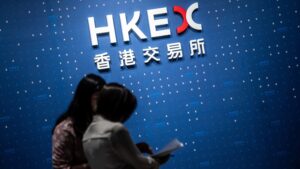Chinese Cities Adopt DeepSeek Technology to Enhance Smart Governance

The Rise of AI in China’s Public Administration
Introduction to AI Transformation
As artificial intelligence (AI) establishes its presence across various sectors, China is at the forefront of adopting AI technology to enhance public administration and urban management. This shift not only boosts efficiency but also opens up new pathways for improving everyday life. This article explores how local governments in China are integrating AI solutions, particularly the DeepSeek model, into their operations.
The DeepSeek Model and Its Implementation
What is DeepSeek?
DeepSeek is an advanced AI model designed to improve governance and streamline services within public administration. By harnessing AI’s capabilities, this model aims to transform government processes and better meet the needs of citizens.
Pioneering Efforts in Shenzhen
Shenzhen, known as a technology hub in southern China, has taken the lead in deploying DeepSeek in government services. The Longgang District was the first to implement the DeepSeek-R1 model within its digital infrastructure. This initiative has provided valuable support for over 20,000 civil servants in the region. An AI assistant powered by DeepSeek was also introduced via a mini-program on WeChat, enhancing services for local businesses.
Expanding AI Adoption Across Districts
AI Employees in Futian District
Following Longgang’s success, the Futian District in Shenzhen has added 70 AI-powered "employees" into its workflow as of February 18. These digital assistants utilize localized knowledge bases to assist in various administrative scenarios, including:
- Public document processing
- Emergency management
- Public services
- Investment promotion
The introduction of these AI employees has significantly increased government efficiency. Document processing accuracy has soared to 95%, with review times slashed by 90% and errors reduced to below 5%. Moreover, the AI systems have dramatically improved the accuracy of handling public service requests from 70% to 95%, decreasing the time needed for tailored administrative services from five days to mere minutes.
Broader Adoption Beyond Major Cities
Linyi’s Integration of DeepSeek
The adoption of AI is not limited to first-tier cities. Linyi, a city in eastern China’s Shandong Province, has also integrated DeepSeek into its digital government framework. A prominent project is the "Yimeng Insight" system, which compiles data on businesses to create credit profiles. This system has facilitated financial support for various enterprises, generating profiles for over 14,000 businesses and aiding in loan approvals worth approximately 3.66 billion yuan (around 510 million U.S. dollars).
China’s Commitment to Digital Governance
China’s rapid advancement in e-governance demonstrates its commitment to using technology for more efficient public administration. The government has introduced various initiatives, including one-stop service platforms and virtual services, all aimed at modernizing governance.
This year’s government work report reinforced the focus on enhancing the digital government, with plans to refine the national online platform for government services.
Benefits of AI Integration in Government Services
According to experts, using AI models like DeepSeek can greatly enhance public service efficiency. The benefits include:
- Improved content generation
- Intelligent interaction with citizens
- Enhanced urban governance systems and capabilities
Wu Yiping, a professor at Shanghai University of Finance and Economics, emphasizes that integrating AI into government can modernize public service delivery significantly.
Challenges and Ethical Considerations
While the benefits of AI in governance are clear, challenges remain, particularly concerning data security, privacy, and ethical considerations. Experts warn against potential over-reliance on AI, which could lead to systemic risks if not managed properly. Wu Shenkuo, a researcher at the Internet Society of China, highlights the importance of establishing clear boundaries for AI applications to avoid unintended consequences.
Concerns about ethical risks and fairness in AI-assisted governance decisions necessitate thorough assessments to ensure that the integration of AI maintains integrity and transparency in public administration.






